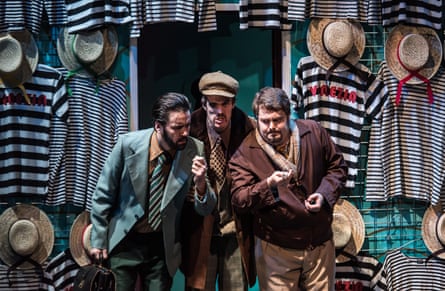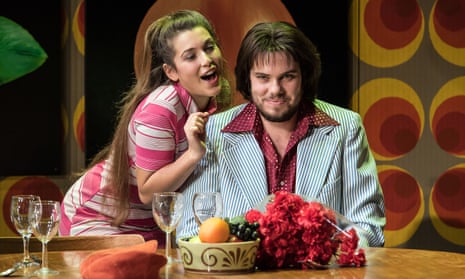Ermanno Wolf-Ferrari – who tacked his Italian mother’s maiden name on to his German father’s surname – was born and died in Venice, but his life and cultural outlook reflected both sides of his binational background.
Much of his career was spent in Munich, where his comedy The Inquisitive Women – the first of five titles based on the 18th-century Venetian playwright Goldoni – received its successful premiere in 1903. International productions followed, mostly in the language of the original libretto – Italian, with Venetian dialect thrown in.
The plot recounts how a group of Venetian women, suspicious as to what their menfolk are getting up to in a men-only club, eventually gain entry – only to discover nothing more sinister than gourmandising.
It’s a slender idea pursued over the course of three acts via an attractive and well-crafted score that nevertheless leaves few solid traces behind; the result is regularly enjoyable but distinctly garrulous.

With 17 named roles, though, it makes an ideal work for students, requiring constant ensemble playing from all the cast, with no individual parts dominating to the point of crowding out any of the others. A number of voices to watch nevertheless register, including Thomas Atkins’s Florindo, Milan Siljanov’s Arlecchino, Bethan Langford’s Beatrice and Nicola Said’s Rosaura.
Stephen Barlow’s production moves the action forward to the 1970s, while maintaining the Venetian ambience imaginatively conveyed in Yannis Thavoris’s colourful and cleverly revolving quick-change sets. Dom Baker provides a witty video introduction to the piece, modelled on TV sitcoms of the period. Mark Shanahan’s conducting gives the happy-go-lucky score the briskness it needs without being entirely able to disguise its lack of substance.
- At Guildhall School of Music and Drama, London, until 9 November. Box office: 020-7638 8891.

Comments (…)
Sign in or create your Guardian account to join the discussion